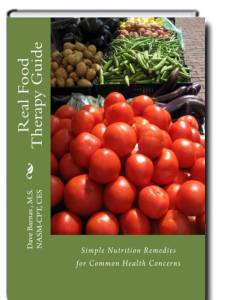 The low fat craze of the 90’s and 2000’s is ending and for good reasons. Fat once seemed to be the enemy of good health, yet in recent years, science has advanced to pave a new road to health with food.
The low fat craze of the 90’s and 2000’s is ending and for good reasons. Fat once seemed to be the enemy of good health, yet in recent years, science has advanced to pave a new road to health with food.
Low-cal Vs. Lo-carb
Studies compared people following a low calorie diet with people following a carbohydrate (carbs) controlled diet. Results showed that people who reduced their carbs had greater weight and fat loss, better compliance, a better ability to keep the weight off long-term, and higher satisfaction with food choices.[i]
As a result of these and other recent studies, weight loss seekers are gravitating toward low-carb snacks, such as the Atkins Advantage meal bars, preferably with a sweet taste. The sweetness discovered, however, is not from the sugar (sucrose) we know about, it’s from sugar alcohols.
What are Sugar Alcohols? (SAs)
Forms of sugar including erythritol, glycerin, isomalt, lactitol, maltitol, mannitol, sorbitol, and xylitol are sugar alcohols (polyols). Many low-carb products are sweetened with sugar alcohols to simulate the taste and ‘mouth-feel’ of sugar.
What are the Pros of SAs?
Enhance taste of low-carb products (similar to sugar).
Unlike sugar, SAs do not cause a rapid rise in insulin (fat storage hormone).
Favorable for weight loss because they are not fully absorbed by the gut.
Better than sugar for cavity prevention and colon health.
What are the Cons of SAs?
Partial absorption by the gut may elicit gastrointestinal (GI) distress.
May elicit laxative effects if consumed in high amounts.
Some folks who consumed low-carb cookies with SAs experienced tremendous stomach pain shortly thereafter.
True Health Unlimited’s Take
While a personalized approach with real food is always recommended, weight loss seekers may find snacks or bars with SAs are a favorable substitute for sugary snacks and drinks. Due to the potential for gastrointestinal distress from SAs, it is advised not to have more than 20-30 grams of SAs per day – think moderation. Folks with a sensitive GI tract are advised to proceed with caution.
References:
[i] C.D. Gardner, A. Kiazand, S. Alhassan, S. Kim, R. S. Stafford, R. R. Balise, et al., “Comparison of the Atkins, Zone, Ornish, and L E A R N Diets for Change in Weight and Related Risk Factors among Overweight Premenopausal Women: The A TO Z Weight Loss Study: A Randomized Trial,” The Journal of the American Medical Association 297 (2007), 969-977; I. Shai, D. Schwarzfuchs, Y. Henkin, D. R. Shahar, S. Witkow, I. Greenberg, et al., “Weight Loss with a Low-Carbohydrate, Mediterranean or Low-Fat Diet,” The New England Journal of Medicine 359 (2008), 229-241; J.S. Volek, M.L. Fernandez, R. D. Feinman, and S.D. Phinney, “Dietary Carbohydrate Restriction Induces a Unique Metabolic State Positively Affecting Atherogenic Dyslipidemia, Fatty Acid Partitioning, and Metabolic Syndrome,” Progress in Lipid Research 47 (2008), 307-318.
Get Your Free on Inspired Living™ e-newsletter, plus Free Real Food Therapy Guide
Download Now!
Watch This, Feel Inspired




